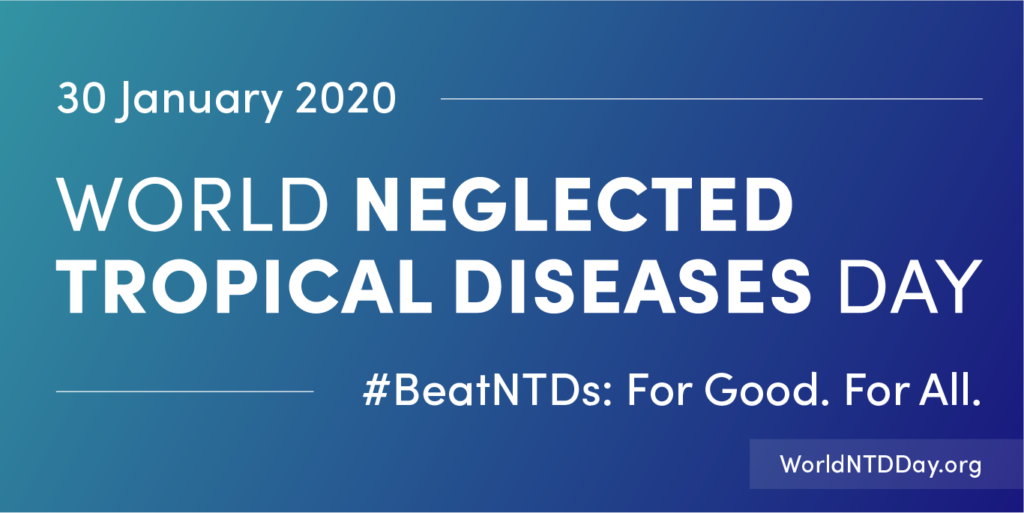
|
UMass Medical School is participating in World Neglected Tropical Diseases Day on Thursday, Jan. 30, the first day dedicated to the eradication of neglected tropical diseases (NTDs). NTDs are a group of ancient diseases, including intestinal worms, river blindness, guinea worm and trachoma, that threaten 1.6 billion people living in the poorest and most marginalized communities worldwide.
“The global health burdens associated with soil-transmitted nematodes, which we study, as well as other neglected diseases such as river blindness, guinea worm and trachoma are enormous and disproportionally affect the poorest communities,” said Raffi Van Aroian, PhD, professor of molecular medicine. “World Neglected Disease Day will be commemorated on campus with a seminar and educational activities to bring attention to and galvanize efforts to tackle such health disparities caused by neglected diseases that are common in the world but rare in the United States.”
Patrick Skelly, PhD, associate chair and professor of infectious disease & global health at the Cummings School of Veterinary Medicine at Tufts University, will be presenting the talk How schistosomes impede immunity and thrombosis on Jan. 30. The seminar will begin at 4 p.m. in the Molecular Medicine Seminar Room, on the 3rd Floor of Biotech II. Dr. Aroian and Gary Ostroff, PhD, professor of molecular medicine, are hosting Dr. Skelly.
The Program in Molecular Medicine and The Li Weibo Institute for Rare Diseases are co-sponsoring the day’s events.
The discovery of new and superior treatments for human soil-transmitted helminths, or intestinal parasites, is urgently needed and a primary focus of the Aroian lab. A debilitating tropical disease second only to malaria, hookworm, whipworm, and Ascaris (large roundworm) infect upwards of 2 billion people in the world and are the leading causes of childhood stunting (physical and cognitive), malnutrition, adverse pregnancy outcomes and loss of productivity worldwide.
“Efforts to research and treat these diseases in the biomedical community are significantly underfunded relative to their global disease burden,” said Aroian.
Soil-transmitted helminths can live in the small intestine for as long as 10 years, drinking blood, robbing their hosts of iron and protein, interfering with absorption of critical nutrients and suppressing the immune system. Infection can lead to chronic anemia, as well as permanently stunt physical and intellectual development in infected children.
Three species of hookworms can infect humans. People most commonly infected typically reside in poverty-stricken areas with poor sanitation and are exposed to the worm through contaminated soil or food. Common in the American south 100 years ago, hookworms were virtually eradicated in the United States through improvements in sanitation and public health efforts during the early part of the 20th century.
“The only drugs we have to combat these parasites were developed to treat farm animals and are only partially effective,” said Aroian. “There is a tremendous need for a treatment for hookworms in humans that is safe, effective and affordable in the world’s poorest countries.”
Related stories on UMassMedNow:
Hookworm infection may cause cognitive impairment earlier than thought
UMMS sequences hookworm genome; may lead to new treatments for tropical disease
UMMS undergrad research program puts ‘best and brightest’ students in the lab